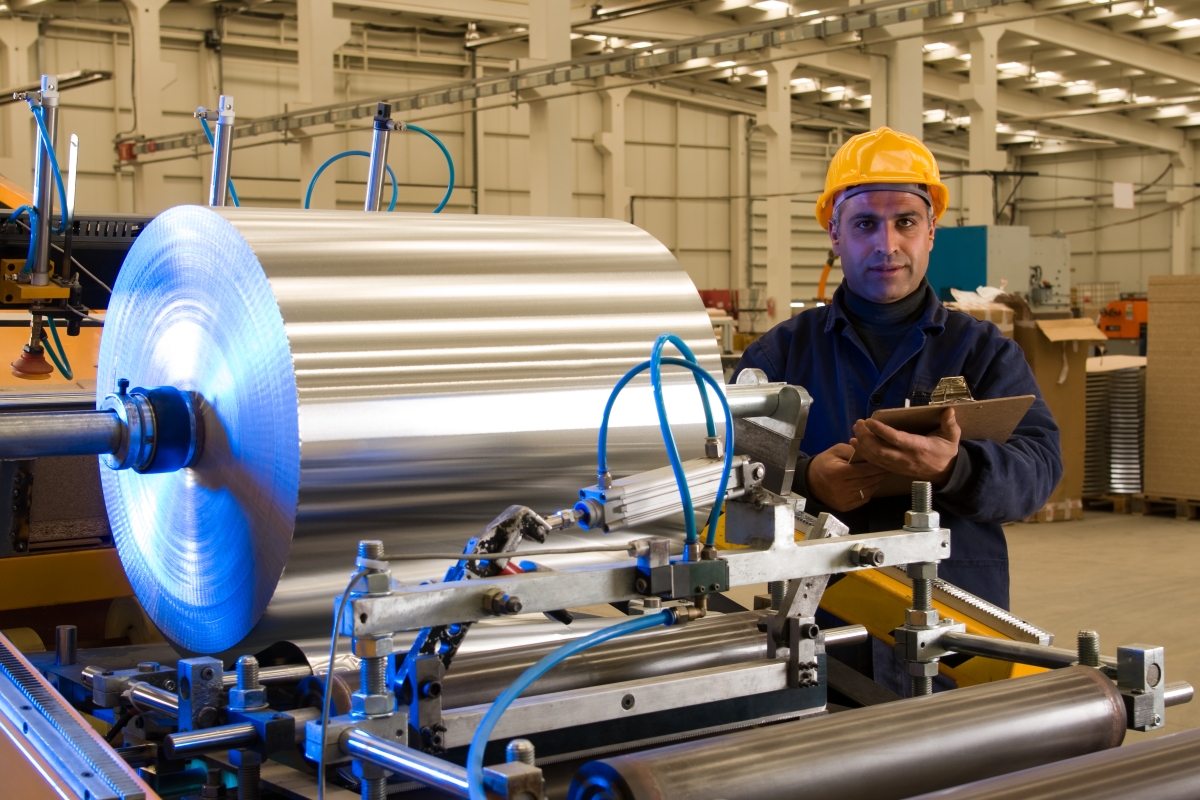Career Overview
Labourers in this group:
- Perform material handling, clean up, packaging and other elemental activities related to mineral ore and metal processing
- Work in mineral ore and metal processing plants such as copper, lead and zinc refineries, uranium processing plants, steel mills, aluminum plants, precious metal refineries, cement processing plants, clay, glass and stone processing plants and foundries
Job Titles
Duties
Labourers in mineral and metal processing perform some or all of the following duties:
- Move raw materials, finished products, scrap and recyclable materials throughout plant manually or using forklift or other powered equipment
- Feed conveyors, crushers and other equipment
- Open valves and start pumps
- Skim dross from furnaces
- Sort, stack, bundle and stamp materials
- Perform other activities to help process and machine operators in mineral ore and metal processing
- Clean work areas and equipment
- May help with minor repairs and maintenance
Earnings
Earnings is income that workers receive in exchange for their labour. Depending on the type of employment, earnings can be in the form of wages (hourly), salaries (fixed monthly or annual) or self-employed earnings.
Work Environment
# Workers Employed
965% Employed Full Time
63%Key aspects of the work in this occupation:
- Work takes place in an indoor plant environment
- Workers may be exposed to fire, steam or intensely not surfaces that could cause injury
- Working with machinery, equipment and hand/power tools may be a source of injury
- Workers may be exposed to flying or airborne particles such as metal pieces and dust in the work environment
- Workers may be exposed to noise that could impair hearing
Career Pathways
Progression to machine and process operator positions is possible with experience.
Related Careers
Occupational Interests
It’s important to understand what kinds of occupations align with your interests.
For more about occupational interests visit Skills for the Future Workforce > Characteristics.
Here are the top occupational interest(s) for this career profile:
Education, Training and Skills
Completion of secondary school may be required for some occuaptions in this group.
Education programs in B.C.
The following program areas are related to this occupation:
- Academic/Basic Upgrading

Skills
Every job calls for a certain set of skills. Knowing those skills is the first step in finding a good career fit.
Here, you will find the 10 most relevant workplace skills. Some are more important to achieving success in a certain career than others. These skills may come naturally to you or you may need to gain them through education, training and experience.
See the list of work-related skills below, ranked in order of importance for this career. Check out the list and see if this career matches your skills—take that first step!
Watching gauges, dials or other indicators to make sure that a machine is working properly.
Keeping track of and assessing your performance, other individuals, or organizations to make improvements or take corrective action.
Giving full attention to what other people are saying, taking time to understand the points being made, asking questions as appropriate, and not interrupting at inappropriate times.
Talking to others to share information effectively.
Understanding written sentences and paragraphs in work-related documents.
Conducting tests and inspections of products, services or processes to evaluate quality or performance.
Using logic and reasoning to identify the strengths and weaknesses of alternative solutions, conclusions or approaches to problems.
Controlling operations of equipment or systems.
Adjusting actions in relation to others' actions.
Being aware of others’ reactions and understanding why they react as they do.
Labour Market Statistics
Discover data, facts and information that have been gathered and analyzed. Learn about the characteristics of the economy and labour market in B.C.
Employment
Find out about employment types and trends by region and industry.
Employment
965Employment by Region







| Region | Employment | % Employment of this Occupation |
|---|---|---|
| Cariboo | 35 | 3.6% |
| Kootenay | 50 | 5.2% |
| Mainland/Southwest | 695 | 72.0% |
| North Coast and Nechako | 60 | 6.2% |
| Northeast | 0 | 0.0% |
| Thompson-Okanagan | 80 | 8.3% |
| Vancouver Island/Coast | 45 | 4.7% |
Labour Market Outlook
The B.C. Labour Market Outlook is a 10-year forecast of the expected supply and demand for labour in the province. It’s usually updated every year. The purpose is to provide British Columbians with the knowledge to make informed decisions on careers, skills training, education and hiring.
Forecasted Job Openings (2024-2034)
330Forecasted Job Openings
Forecasted Employment Growth Rate
Composition of Job Openings
Job Openings by Region (2024-2034)







| Region | Job Openings | Avg. Annual Employment Growth |
|---|---|---|
| Cariboo | 0 | -0.6% |
| Kootenay | 10 | 0.2% |
| Mainland/Southwest | 270 | 1.0% |
| North Coast and Nechako | 40 | 1.1% |
| Northeast | Not available | Not available |
| Thompson-Okanagan | 20 | 0.9% |
| Vancouver Island/Coast | 0 | -3.2% |
Industry Highlights
Learn about the opportunities in B.C.'s major industries, including employment trends, earning potential, locations of work and more.
Forecasted Job Openings by Industry
| Industry | Job Openings (2024-2034) |
|---|---|
| Manufacturing | 210 |
| Wholesale Trade | 80 |
| Construction | 10 |
| Mining and Oil and Gas Extraction | 10 |
| Transportation and Warehousing | 10 |
Resources
-
Association for Mineral Exploration British Columbia (AME BC)www.amebc.ca
-
MineralsEdwww.mineralsed.ca
-
Mining Association of British Columbia (MABC)www.mining.bc.ca








